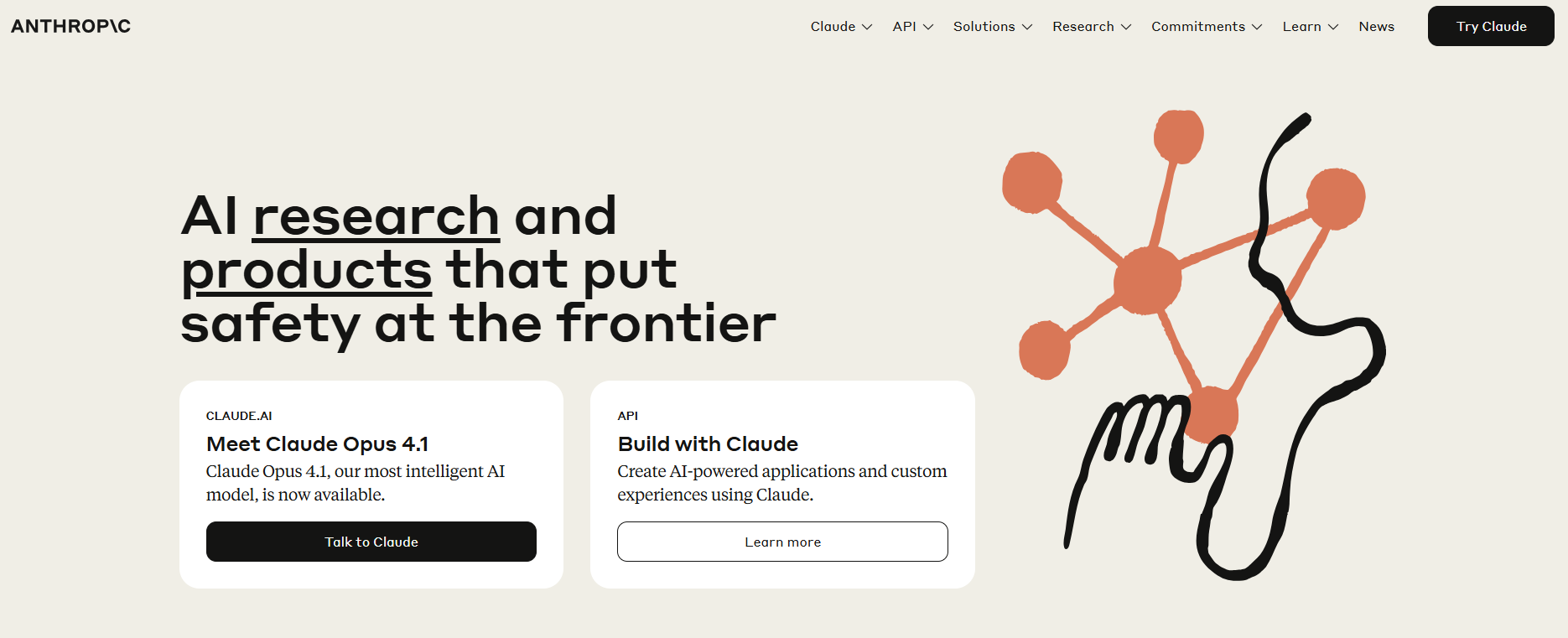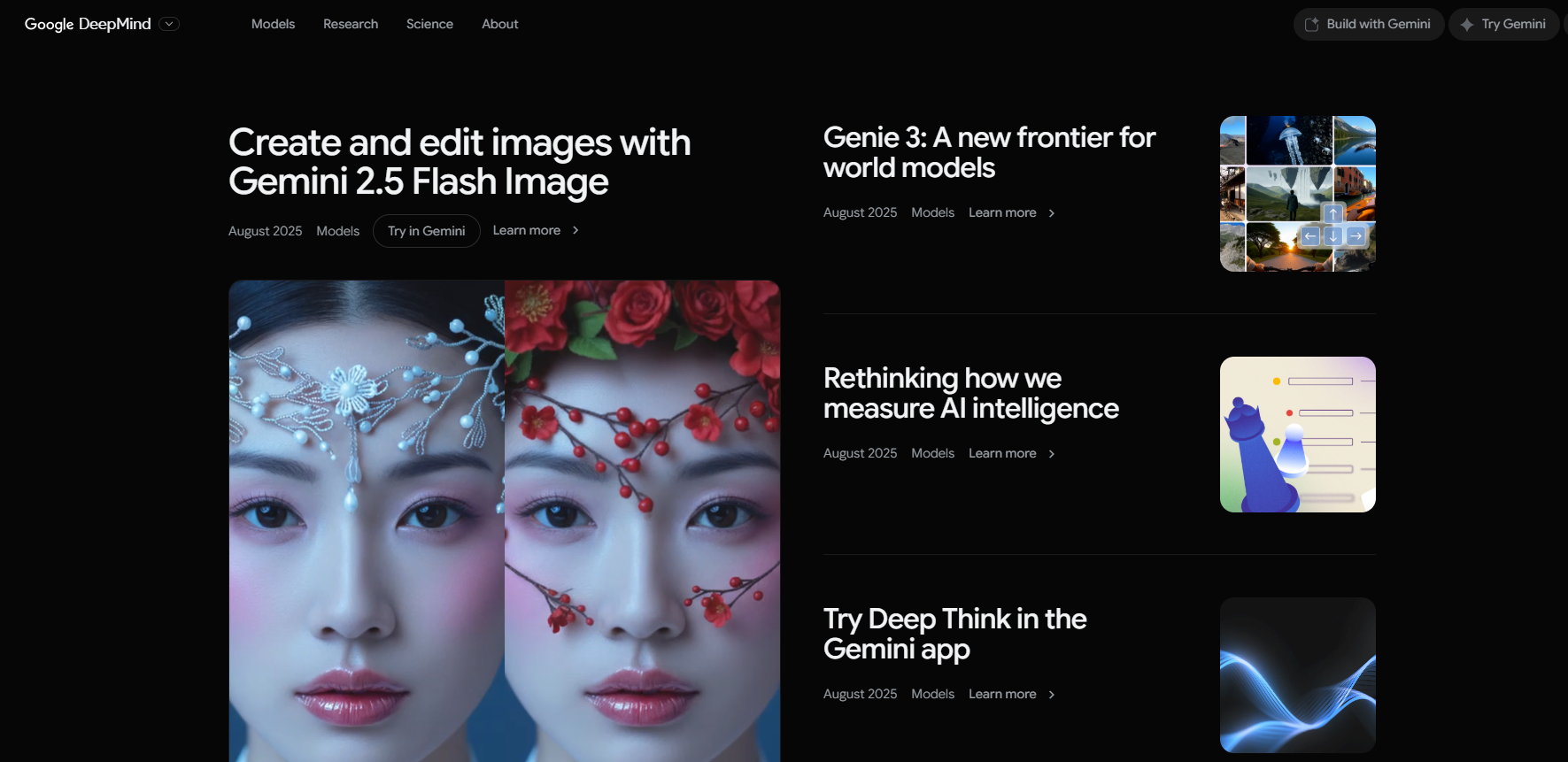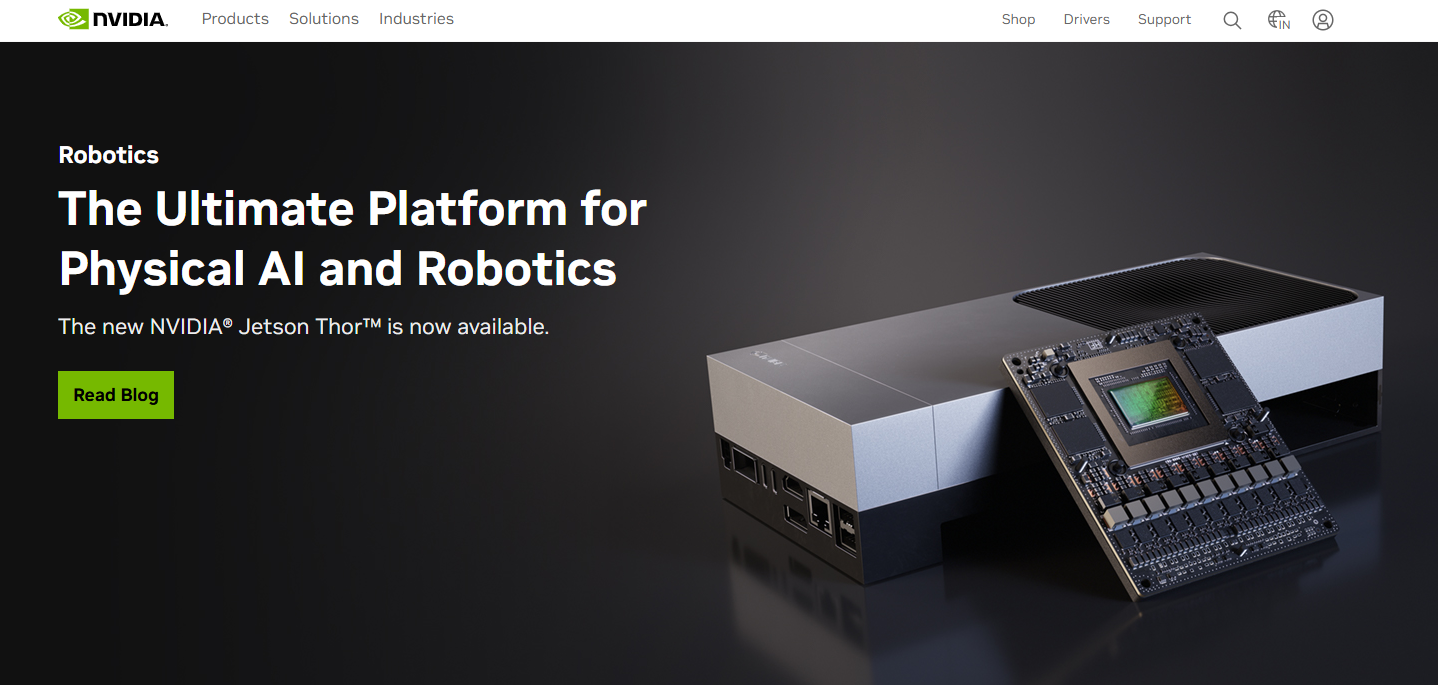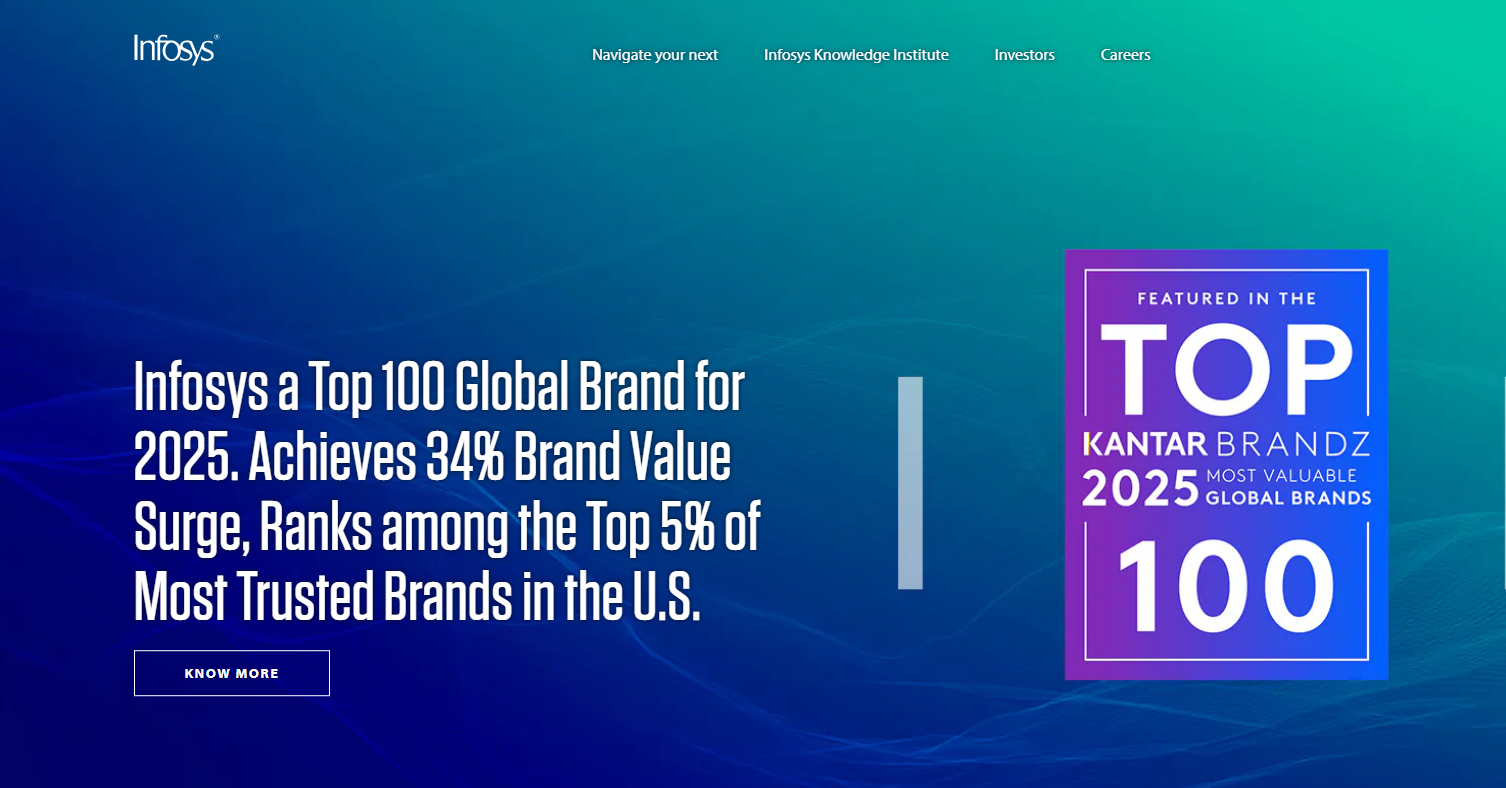
Not too long ago, businesses were debating whether Artificial Intelligence would ever move beyond research labs. Fast forward to 2025, and the conversation has completely shifted. Generative AI is no longer a “nice to have” but a competitive advantage that organizations can’t ignore.
Table of Content
From startups designing logos with AI tools to global enterprises generating millions of lines of optimized code, the technology has become a practical driver of growth. In fact, a recent McKinsey report revealed that over 60% of companies have already adopted generative AI in at least one business function, with marketing, customer engagement, and product development leading the way. Another study projects the Generative AI market to exceed $120 billion by 2030, growing at a staggering 30%+ CAGR.
But beyond the numbers, the impact is deeply human. Imagine a doctor using AI to accelerate drug discovery that could save lives, or a retailer generating thousands of personalized product recommendations that make shopping seamless for every customer. Generative AI isn’t just improving efficiency—it’s unlocking creativity, personalization, and decision-making at scales we couldn’t have imagined a few years ago.
In this blog, we’ve curated a list of the 10 top generative AI development companies in 2025 that are truly moving the needle. These are not just big names riding the AI wave—they’re innovators building solutions that transform industries. We’ll also share insights on how we evaluated these companies, the industries reshaped by generative AI, what it costs to build an AI solution, and why Code Brew Labs is emerging as a trusted partner for businesses ready to embrace the future.
With so many players entering the generative AI space, it’s easy for businesses to get overwhelmed. To ensure this list truly reflects the best of the best, we used a clear set of criteria that goes beyond hype and focuses on real impact.
Here’s what we looked at:
At the end of the day, choosing the right generative AI partner isn’t about who has the flashiest tools—it’s about finding a team that can translate AI into measurable business outcomes. That’s exactly what the companies on this list, starting with Code Brew Labs, bring to the table.

When it comes to generative AI development in 2025, Code Brew Labs has established itself as a leading generative AI development company and a trusted partner for businesses ready to move beyond experimentation and achieve real-world impact. With a proven track record of delivering AI-powered applications to more than 1,000 brands worldwide, the company is known for creating solutions that combine innovation with measurable business results.
Unlike many firms that focus solely on research, Code Brew Labs specializes in practical, business-ready generative AI solutions. Their strength lies in combining technical expertise with a deep understanding of industry-specific challenges. From deploying large language models (LLMs) for enterprise communication to building AI-driven recommendation engines, they focus on solutions that directly improve revenue, efficiency, and customer experience.
Industries Served
Key Generative AI Solutions Offered
What sets Code Brew Labs apart is its end-to-end development approach. They don’t just build models; they design, develop, and integrate AI into your ecosystem, ensuring scalability and long-term success. Their clients often highlight their consultative process, strong post-deployment support, and the ability to deliver ROI-driven AI solutions, qualities that make them the go-to partner for businesses serious about AI adoption.

About the Company
OpenAI, founded in 2015, has become synonymous with generative AI innovation. Known for creating ChatGPT and DALL·E, OpenAI has redefined what AI can do—from generating human-like conversations to producing creative images and even assisting in code development. The company’s mission revolves around ensuring artificial intelligence benefits all of humanity, and they remain at the forefront of safe, scalable, and impactful AI deployment.
Key Specializations
OpenAI’s expertise lies in large language models (LLMs) and multimodal AI systems. Tools like GPT-4, Codex, and DALL·E 3 have powered a range of business applications, chatbots, knowledge assistants, design tools, and content-generation engines. OpenAI also provides APIs for developers, enabling businesses to integrate powerful generative AI capabilities into their own platforms.
Why They Stand Out
OpenAI’s strength is its unmatched research leadership and global adoption. Their models set industry standards, powering solutions in healthcare, education, customer service, and creative industries. With a growing ecosystem of partnerships (including Microsoft), OpenAI continues to push the boundaries of what generative AI can achieve. Businesses trust them for their proven scalability, innovation, and safety-first approach.

About the Company
Anthropic is one of the most exciting new players in generative AI, founded by former OpenAI researchers. Their work focuses on creating reliable, steerable, and safe AI models that align with human intentions. With a mission to build AI systems that are both powerful and ethically responsible, Anthropic has quickly gained recognition as a trusted AI partner.
Key Specializations
Anthropic is best known for Claude, their large language model designed with enhanced safety and alignment features. Unlike traditional AI systems, Claude emphasizes transparency and reduced harmful outputs, making it ideal for businesses that prioritize responsible AI adoption. Their focus extends across knowledge management, customer support automation, and workflow acceleration.
Why They Stand Out
What makes Anthropic unique is its commitment to ethical AI practices. They have built a reputation for championing safety-first generative AI, giving businesses confidence that they can scale innovation responsibly. With growing enterprise adoption and continuous model improvements, Anthropic is shaping the future of trustworthy AI systems.

About the Company
Google DeepMind has been a pioneer in artificial intelligence research since its founding in 2010. Acquired by Google, the company has produced groundbreaking innovations in reinforcement learning, natural language processing, and generative AI. DeepMind’s influence is visible in real-world applications ranging from protein folding to energy optimization.
Key Specializations
DeepMind has made significant progress with Gemini, Google’s next-generation multimodal AI system that combines reasoning, text generation, and image understanding. Their expertise lies in building research-driven, high-performance AI models that are adaptable to complex problem-solving across industries like healthcare, finance, and science.
Why They Stand Out
DeepMind’s differentiator is its research-driven credibility and global impact. Breakthroughs like AlphaFold, which revolutionized protein structure prediction, prove that their AI is not just commercial, it’s transformative. Businesses looking for cutting-edge, scientifically validated AI solutions view DeepMind as one of the most reliable leaders in generative AI.

About the Company
Microsoft AI has emerged as a powerhouse in enterprise AI adoption, thanks to its strategic partnership with OpenAI and integration of generative AI across its ecosystem. From Microsoft Azure to productivity tools like Word, Excel, and Teams, AI is now deeply embedded in the company’s DNA.
Key Specializations
Microsoft specializes in scalable enterprise AI solutions. Through Azure OpenAI Service, businesses can integrate GPT models seamlessly into workflows, while tools like Copilot for Microsoft 365 bring generative AI directly to knowledge workers. Their expertise lies in making AI accessible and enterprise-ready.
Why They Stand Out
Microsoft’s strength is its scale and enterprise integration. Few companies can match their reach across industries, from startups to Fortune 500 enterprises. By embedding AI in widely used productivity and cloud tools, Microsoft ensures generative AI is not just innovative but also practical and immediately usable.

About the Company
IBM has been a long-standing leader in artificial intelligence, and its new WatsonX platform brings generative AI into the modern business era. IBM’s focus is on combining AI innovation with enterprise trust, governance, and compliance—a critical consideration for regulated industries.
Key Specializations
WatsonX provides a suite of generative AI and machine learning tools designed for enterprise data analysis, process automation, and knowledge extraction. With strong capabilities in AI governance, WatsonX allows businesses to scale AI while maintaining control over data, compliance, and ethics.
Why They Stand Out
IBM is widely respected for its enterprise-grade reliability. With WatsonX, they offer businesses a safe path to embrace generative AI without sacrificing security or compliance. This makes IBM a go-to partner for industries like banking, healthcare, and government.

About the Company
NVIDIA, originally known for its GPUs, has evolved into a global leader in AI infrastructure and generative AI innovation. Their hardware and software power some of the world’s most advanced AI research and commercial applications.
Key Specializations
NVIDIA’s strength lies in its AI computing platforms and model acceleration. Their NVIDIA AI Enterprise Suite and platforms like NeMo enable businesses to build, train, and deploy large language models at scale. They are also deeply involved in synthetic data generation and simulation environments.
Why They Stand Out
NVIDIA provides the foundation of the generative AI revolution. From powering research labs to enabling enterprises with infrastructure and tools, NVIDIA has unmatched credibility. Their role as both a hardware and software innovator makes them indispensable for companies building AI at scale.

About the Company
Infosys, a global IT consulting and digital transformation leader, has invested heavily in AI and automation solutions. Their focus is on helping businesses integrate generative AI into core operations to accelerate efficiency and innovation.
Key Specializations
Infosys leverages its Infosys Topaz platform to deliver AI-first solutions, including process automation, customer service optimization, and predictive analytics. They provide customized AI services tailored to enterprise needs, ensuring scalability and cost-effectiveness.
Why They Stand Out
Infosys’s strength lies in its consulting-led approach combined with deep technical expertise. Their ability to tailor generative AI to specific business problems makes them a valuable partner for enterprises seeking practical AI adoption rather than experimental use cases.

About the Company
Accenture is one of the world’s largest consulting firms, with a strong focus on AI and digital transformation. Their global reach and cross-industry expertise make them a leading force in helping enterprises adopt generative AI responsibly.
Key Specializations
Accenture’s AI practice emphasizes enterprise-scale AI strategy, implementation, and management. They help businesses adopt generative AI for marketing personalization, customer engagement, product innovation, and process automation.
Why They Stand Out
Accenture’s differentiator is its ability to deliver end-to-end AI transformation. With global talent, industry-specific frameworks, and a proven track record, they help businesses not just adopt generative AI but reimagine entire business models with it.

About the Company
Hugging Face has become the open-source hub for AI innovation, empowering developers and researchers worldwide. Known for its Transformers library, Hugging Face has made state-of-the-art AI models accessible to the global community.
Key Specializations
Their platform provides open-source models, datasets, and tools for building generative AI solutions. Hugging Face’s Inference API and collaborative AI ecosystem make it easier for businesses to adopt cutting-edge AI without heavy infrastructure investments.
Why They Stand Out
Hugging Face is celebrated for its community-driven innovation. By democratizing access to generative AI, they ensure businesses of all sizes—from startups to enterprises—can benefit from the latest advancements. Their collaborative ecosystem makes them a trusted partner for innovation-driven AI adoption.
Generative AI isn’t just changing how we use technology—it’s reshaping entire business models. What makes it powerful is its ability to move beyond automation and actually create: text, images, insights, and even strategies that drive measurable results. In 2025, we’re seeing adoption spread across industries that once seemed slow to embrace new tech.
Healthcare is one of the most promising areas for generative AI. Instead of spending years testing drug compounds manually, pharmaceutical companies now use AI models to simulate how molecules might interact, saving enormous time and cost. Doctors are also using AI-driven assistants to engage with patients—whether it’s answering basic health questions, summarizing medical histories, or generating personalized treatment plans. For example, AI is helping radiologists detect anomalies in scans faster than traditional methods, giving patients a better chance at early intervention.
Banks and fintech companies are leaning on generative AI for fraud detection and smarter investment strategies. Instead of relying solely on static rules, AI models can spot unusual transaction patterns in real-time. On the customer side, AI-powered chatbots are becoming more “financially literate,” answering complex queries about mortgages or investment portfolios in plain language. For wealth managers, generative AI can synthesize market data into client-ready reports within minutes—something that used to take analysts days.
If you’ve noticed product recommendations feeling almost “too accurate” lately, that’s generative AI at work. Retailers are using it to analyze customer preferences and generate hyper-personalized shopping experiences. It goes beyond recommending products—AI can now generate product descriptions, create marketing banners, and even build photorealistic images of items before they’re manufactured. This reduces the cost of photography and speeds up how quickly new products can hit the market.
Property listings are no longer limited to static photos and text. Generative AI tools are creating virtual property tours that feel immersive, helping buyers “walk through” homes from anywhere in the world. Agencies are also using AI to automatically generate listing descriptions, saving time for agents while ensuring consistent quality. Predictive models can even forecast property value trends, giving investors data-backed insights before they commit.
Generative AI is quietly becoming the teacher’s assistant every classroom needs. AI tutors are providing personalized support, adapting lessons to each student’s pace and learning style. For instance, a high schooler struggling with algebra might get custom practice problems generated on the spot, while another preparing for a history exam could get AI-generated summaries tailored to their syllabus. This kind of adaptive learning wasn’t possible at scale until now.
Marketers often describe generative AI as a “creative accelerator.” Instead of brainstorming copy for hours, teams can now generate dozens of ad variations instantly, then refine them with human creativity. The same applies to visuals—AI can generate campaign-ready designs in minutes. What sets top marketers apart is knowing how to blend human insight with AI output, ensuring campaigns remain authentic while still benefiting from AI’s speed and scale.
From Hollywood studios to indie game developers, content creation is being redefined. AI can help generate story outlines, fill gaps in scripts, and even produce rough video edits, dramatically cutting production time. In gaming, AI is being used to create dynamic worlds that adapt to player behavior. Rather than replacing creators, generative AI is giving them new tools to experiment and push boundaries.
For many businesses, the idea of building a generative AI solution feels overwhelming, almost reserved for big tech players. The reality is that in 2025, with the right approach, even startups and mid-sized companies can develop practical AI tools that add real value. The process doesn’t start with algorithms; it starts with your business goals.
AI isn’t a magic wand. The companies that succeed are the ones that identify a specific problem first, whether that’s cutting customer service costs, reducing fraud, or speeding up product launches. Without a clear use case, AI often turns into an expensive experiment.
Generative AI learns from data, and the quality of your data will make or break the solution. That might mean pulling structured data from CRMs, unstructured data from support tickets, or visual data from product libraries. Cleaning and organizing this information is just as important as choosing the model itself.
Different problems require different models. Large Language Models (LLMs) like GPT are excellent for customer communication and content. Diffusion models shine in image generation. Multimodal models, those that can process text, images, and more, are ideal for industries like retail or healthcare where multiple data types intersect. Choosing the right model ensures efficiency and relevance.
Out-of-the-box models are impressive, but they’re also generic. A bank chatbot trained only on public data won’t know your compliance rules. Fine-tuning with your own business data ensures the solution actually reflects your brand, your industry, and your customers.
The most effective AI solutions don’t sit in isolation; they plug directly into workflows. Whether it’s a Shopify store, a Salesforce CRM, or a hospital’s electronic health records, seamless integration ensures adoption by your team and usability for customers.
Launching company-wide on day one is risky. Smart businesses start with a pilot project, measure results, and then scale gradually. This approach reduces risk, keeps costs manageable, and ensures the AI actually solves the problem it was designed for.
The cost to develop a generative AI solution typically ranges from $20,000 for a basic MVP to $200,000+ for a fully customized, enterprise-grade system, depending on complexity, infrastructure needs, and compliance requirements.
Key cost factors include:
Estimated cost ranges:
And don’t forget the ongoing costs: maintaining infrastructure, retraining models with fresh data, performance monitoring, and scaling as usage grows.
From an ROI perspective, it helps to view generative AI not just as an expense, but as an investment. A well-implemented solution can reduce manual work, improve customer experience, and unlock new revenue streams, paying for itself many times over in the long run.
Choosing the right AI development company is as important as the technology itself. With dozens of companies claiming expertise in AI, how do you separate the hype from genuine capability?
Here’s a practical checklist for business owners:
Generative AI has already proven its disruptive potential, but the real transformation is only just beginning. Looking ahead to 2025 and beyond, here are the key trends that will shape how businesses adopt and scale AI:
The bottom line? Generative AI will shift from being a competitive advantage to becoming a business necessity, and those who act early will enjoy the most benefits.
Choosing the right partner can make or break your AI journey. At Code Brew Labs, we go beyond technology to deliver solutions that truly transform businesses. Here’s why leading brands trust us:
Generative AI is no longer something businesses can watch from the sidelines—it’s actively shaping how industries operate, innovate, and compete. Whether it’s healthcare companies using AI to discover life-saving drugs, retailers personalizing every step of a shopping journey, or financial firms detecting fraud in real time, the impact is clear: AI is becoming a foundation, not an add-on.
But with opportunity comes complexity. Businesses that succeed with generative AI don’t just adopt the latest tools; they choose the right partner to align technology with strategy. That’s where Code Brew Labs comes in. We’ve helped startups and enterprises alike design AI systems that don’t just sound impressive on paper—they deliver measurable business outcomes.
If you’re serious about exploring what generative AI can do for your business, let’s talk. At Code Brew Labs, we’re ready to help you transform bold ideas into practical, scalable AI solutions.
A generative AI company specializes in building solutions that can create new content, such as text, images, video, code, or even synthetic data, using advanced AI models. These companies help businesses apply AI for automation, creativity, and decision-making.
Timelines vary depending on complexity. A basic MVP can take 3–4 months, while enterprise-grade solutions with heavy customization may require 6–12 months or more. The key factors are scope, data readiness, and required integrations.
Yes, thanks to modular development and cloud-based AI services, small businesses can start with entry-level solutions ranging from $10,000–$80,000. These can scale as the business grows, ensuring affordability without sacrificing impact.
Almost every sector can gain value, but the top adopters today are healthcare, finance, e-commerce, real estate, education, marketing, and entertainment. Each uses AI in unique ways, from personalized shopping to medical research acceleration.
Yes, when built responsibly. Leading companies emphasize data privacy, compliance, and ethical AI practices. Features like explainability, security safeguards, and human oversight ensure enterprise-grade reliability.
Unlike generic providers, Code Brew Labs delivers custom-built AI solutions aligned with business goals. We combine multi-industry expertise, ROI-focused strategies, and end-to-end development to ensure clients see tangible results, not just new tech.
